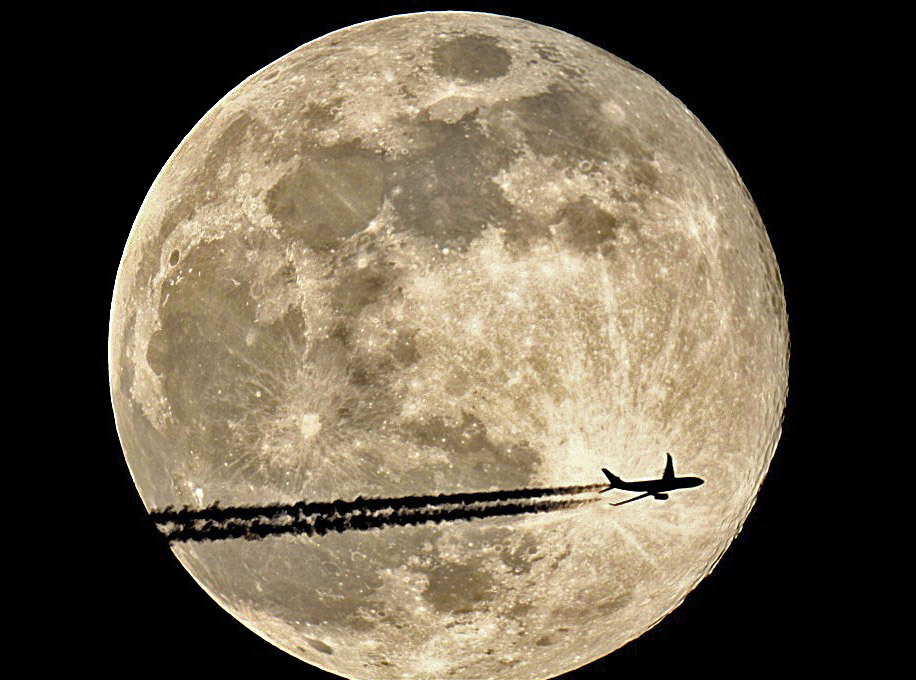
image by Nikolakakos Panagiotis, Sparta, Greece
An airplane a few kilometers overhead is big against the Moon, but what can we see of vehicles on and near the Moon? The short answer is nothing from Earth. Excellent resolution of features on the Moon with Earthly telescopes is still 500 m or more; it will be a long time before a vehicle or outpost on the Moon will be that large. And if America’s lunar base is at the South Pole it will be nearly impossible to see it from here no matter how large it gets. But with orbiters now circling the Moon again, we can see really small features for the first time since Apollo. In addition to scientific targets, relicts from Apollo and prior missions will be imaged. Part of the reason is to try to demonstrate that, Yes, despite what naive people believe from Fox News, we did go to the Moon! But it is scientifically important to image the craters made by various vehicles that hit the Moon (SMART-1 most recently) to help calibrate our understanding of impact cratering - what is the diameter of a crater made from a projectile of known mass and speed? The Japanese orbiter Kaguya/Selene and the Indian Chandrayaan both have resolution of 10 m and should be able to detect the disturbed soil around Apollo landing sites, but only the American Lunar Reconnaissance Orbiter’s 0.5 m resolution will clearly show the Apollo descent stages, the Lunakhod rovers (whose exact positions are unknown), Luna and Surveyor landers, and hopefully the position of Luna 2, the first vehicle to reach the lunar surface. There will be many exciting LPODs in the next few years!
Technical Details:
24-11-07, 18:50. Dob 12” + Canon 350 d iso 100, 1/125 sec.
Yesterday's LPOD: Lucky Lindy and Weird Ibn
Tomorrow's LPOD: Hooray, Chang’E!
COMMENTS?
Register, Log in, and join in the comments.



